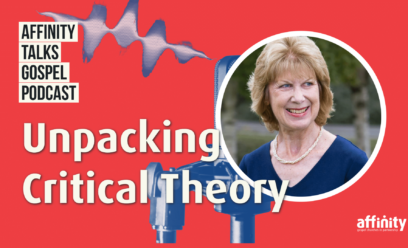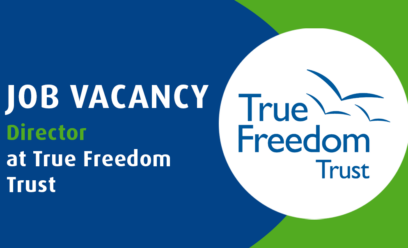Governments across the UK respond to calls to ban conversion therapy

The following article is from the latest edition of Affinity’s Social Issues Bulletin which is free to download.
Simon Calvert is a Deputy Director at The Christian Institute. Follow the Let Us Pray campaign on social media for regular updates on this issue.
If banning conversion therapy simply meant protecting people from abuse and coercion, few would object. But those agitating for a ban want it to include biblical teaching on sex and sexuality – or at least, any attempts to persuade LGBT people to embrace that teaching.
This means evangelism, pastoral care, praying with friends, and even raising your children in the faith, are all in the firing line.
Some readers will be among the 7,000-plus people who supported a letter, co-authored by Affinity Director Graham Nicholls, to Westminster’s Equalities Minister. The letter warns that the category of ‘conversion therapy’:
has the effect of implying an equivalence between calling people to conversion to Christ, which is our duty as Christian ministers, and evil and disreputable past practices which are already illegal and which Christians are the first to condemn.
But activists on the other side cynically argue that Christian teaching is ‘harmful’. Some even maliciously accuse those who disagree with them of being ‘perpetrators of abuse’. If these activists get their way there could be very serious consequences for Christian freedom in the UK. So how are governments around the UK responding?
England
Westminster has just concluded a consultation on its proposals and pledged a Bill in Spring 2022. But the proposals so far are vague and worryingly short on detail. The document does contain this welcome pledge:
The policy approach set out below will not impact everyday religious practice. An adult who wants to be supported to be celibate will be free to do so; parents will remain able to raise their children with the values of their faith, and simply expressing the teachings of a religion will not constitute conversion therapy. The Government will continue to work with faith communities to develop an approach that is effective in protecting people from harm, whilst also respecting the right to freedom of religion and belief. (Paragraph 25)
The problem is, it is not at all clear from the rest of the document how the legislation will deliver on this pledge. Indeed, it appears that the threshold of the offence, in relation to under 18s, may be nothing more than doing something with an ‘intention’ to change someone’s sexual orientation or gender identity. It is easy to see how urging a young person to obey biblical mandates on sexuality or gender could be deemed as ‘intended’ to change them.
The UK Equality and Human Rights Commission unexpectedly endorsed the concerns of Christians when it warned the Government of ‘unintended consequences’, arguing:
conversion therapy will need to be carefully defined in any legislation in order to ensure that harmful practices are caught whilst mainstream religious practices such as preaching, teaching and praying about sexual ethics or gender roles, including in relation to children and young people under 18, are not criminalised. (Para. 16)
Scotland
In Scotland, MSPs on the Parliament’s Equalities Committee have called for a far-reaching ban, echoing the demands of LGBT activists. In a half-hearted response to concerns about religious freedom they say:
…legislation should not pose any restrictions on ordinary religious teaching or the right of people to take part in prayer or pastoral care to discuss, explore or come to terms with their identity in a non-judgmental and non-directive way. However…most conversion practices take place within a religious setting including in the form of ‘talking therapy’ which is used with the intention to ‘correct’ sexuality or gender. The Committee believes and recommends that such practices should fall within a ban. (Para. 3) (Emphasis added)
Parsing the odd grammar, it is clear they want to ban ‘directive’ teaching, prayer or pastoral care. But how can Christians faithfully teach and pray in a ‘non-directive’ way when we believe we must follow the commands of God and gently encourage others to do the same? Such a ban would be a fundamental breach of our human rights.
The Committee calls controversial legislation in Victoria, Australia, which expressly bans prayer, ‘one of the best practice examples’ (Para. 17). There, the state has issued guidance on its ban, which came into effect on 17 February, stating that prayer is not banned ‘unless it is directly used to change or suppress sexual orientation or gender identity’.
The Committee also says:
…conversion therapy is an umbrella term for a therapeutic approach, or any model or individual viewpoint that demonstrates an assumption that any sexual orientation or gender identity is inherently preferable to any other, and which attempts to bring about a change of sexual orientation or gender identity or seeks to suppress an individual’s expression of sexual orientation or gender identity on that basis.
(Para. 21) (Emphasis added)
Again, we would not analyse ordinary church work or parenting in these terms, but our opponents – those who will make complaints about us to the authorities – most definitely will.
The Equalities Committee issued its report in response to a petition from the End Conversion Therapy (ECT) campaign. Astonishingly, seven out of ten members of the Committee had already signed a pledge to ban conversion therapy drawn up by ECT. As we asked in a letter to the Parliament’s Presiding Officer:
How can the Committee be expected to exercise impartial, critical judgement when most of its members have given assurances directly to the campaign group whose claims they are scrutinising and have promised to enact the very policies being sought?
This bias is apparent in the way the Committee scheduled its proceedings. Out of eight evidence sessions, only one gave opportunity for church groups with concerns about the scope of the ban.
On 10 February the First Minister, Nicola Sturgeon, pledged to:
…work with the Parliament’s Equalities, Human Rights and Civil Justice Committee to introduce legislation that is as comprehensive as possible within our devolved powers to ban conversion practices by the end of next year.
Northern Ireland
In 2021, the Northern Ireland Assembly voted by 59 votes to 24 in favour of a motion calling for a ban on conversion therapy. Some MLAs did raise concerns that it could have negative consequences for churches, but others demanded that any law must give no protections for church activities.
During the Stormont debate, Communities Minister, Deirdre Hargey, promised to bring forward legislation to ban conversion therapy. Her department says it is developing plans as part of wider LGBTQI+ Strategy, and stresses she is ‘working closely’ with LGBT groups.
We expect to see legislation in Stormont after the elections in May 2022.
Wales
The Welsh Government has also promised to ban ‘all aspects of LGBTQ+ conversion therapy’, but the powers needed are not devolved. Wales and England will both be included within the Westminster legislation. It is possible the Welsh Government will bring in other measures as part of its wider LGBTQ+ Action Plan – perhaps within the remits of education, health or communities.
What can we do?
There are several Christian groups actively campaigning on this issue and providing their supporters with materials to equip them to pray and take action. Do get involved.
My own organisation, The Christian Institute, has instructed lawyers in England, Scotland and Northern Ireland to write to the respective governments warning them that a ban on prayer, preaching, pastoral care and parenting would put the UK in breach of its obligations under the European Convention on Human Rights. This is in preparation for a potential judicial review.
Do pray that politicians and journalists would give a fairer hearing to the legitimate concerns of Christians and that God would grant wisdom to all those Christians who are speaking out.
We must not lose our confidence in God’s word, or in the work of the Spirit amongst us and through us. The truth is that LGBT people who come to a Bible-believing church get the same warm welcome as anyone else. And most of them are not surprised to find that the church believes things that they don’t. That’s what freedom of religion means.
But some of the activists who oppose biblical teaching, having failed to win the argument by persuasion, want the criminal law to settle these theological disputes in their favour. Politicians must not to give them what they seek.

Stay connected with our monthly update
Sign up to receive the latest news from Affinity and our members, delivered straight to your inbox once a month.



